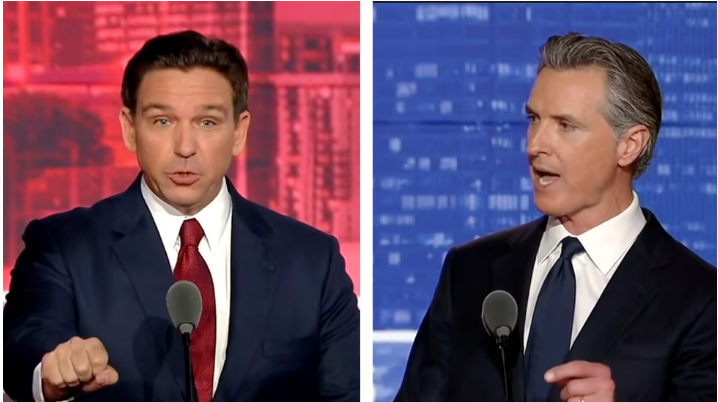Opinion: “It Wasn’t on Purpose…”: Beirut “Accidental” Explosion

Here is a hypothetical:
I was cutting branches off a tree, and a particularly heavy bough accidentally fell on you and cracked your skull.
Here is another:
I was cutting branches off a tree, and I deliberately waited until you were standing beneath a particularly heavy bough before starting the chainsaw. It fell on your head and cracked your skull.
Which is worse?
Before delving into the meat of this article, I should begin with a disclaimer: there will be discussion and comparison of tragedies in this opinion. But this does not amount to the assigning of terrible events to a hierarchy of tragedy. To attempt to rank events with such emotional and abstract impacts is a fool’s errand.
Now, returning to the question above: which is worse, the easily preventable skull-cracking or the deliberately caused one?
Discussion concerning the significance of intent arises virtually every time a major incident with (an initially) murky cause occurs. With regards to the recent explosions in Beirut, theories as to the cause of the catastrophic explosions began circulating immediately. According to a New York Times article published on August 4th, Prime Minister Diab reportedly said: “I will not relax until we find the responsible party for what happened, hold it accountable and apply the most serious punishments against it because it isn’t acceptable that a shipment of ammonium nitrate—estimated to be 2,750 tons—was in a depot for the past six years without precautionary measures being taken.” This statement implies negligence on behalf of someone who was supposed to ensure that the ammonium nitrate was properly secured. That same day, President Trump said to reporters, “It looks like a terrible attack.” That statement—obviously—implies harmful intent.
These conflicting narratives have resolved. It was an accident with an incalculable toll—the facts of over 200 people being dead, some 6,000 injured, and about 300,000 people left homeless provide a shallow quantitative understanding, insufficient to capture the depth of this tragedy.
Stepping away from the human toll for a moment, the immediate speculation as to the cause of this disaster provokes a question: would it be “better” that a tragedy was caused by negligence as opposed to a deliberate plot to destroy? Is that somehow less damaging?
History is littered with examples of tragedies to dissect. On March 24, 1989, at 12:04 a.m., the oil tanker Exxon Valdez hit a reef in Alaska’s Prince William Sound while carrying 53 million gallons of crude oil. The tanker’s hull was ripped open and 11 million gallons of oil spread along 1,300 miles of coastline, killing hundreds of thousands of animals. An investigation later revealed that Joseph Hazelwood, captain of the Exxon Valdez, had let an unlicensed third mate steer the ship, presumably because he’d been drinking. Sounds like negligence occurred here—a fact which not only the Exxon Corporation conceded, but one that a Federal jury affirmed in 1994. It ruled that Exxon had recklessly allowed Hazelwood to captain the ship despite his history of alcohol abuse (for our purposes, consider “negligence” and “recklessness” as lumped together under a non-legal definition of negligence). The same jury found Hazelwood negligent and reckless for drinking heavily the day the tanker crashed.
On April 19, 1995, at 9:02 a.m., a bomb inside a truck parked outside the Alfred P. Murrah Federal Building in Oklahoma City detonated, blowing off the entire north face of the nine-story building. When the rescue efforts ended two weeks later, the death toll stood at 168 with over 650 wounded. Some 300 buildings in the vicinity were damaged or destroyed. The primary culprit, radicalized anti-government ex-soldier Timothy McVeigh, was executed in 2001.
A perfect comparison can’t be drawn between these two events, largely because of the differing natures of the tragedies. One concerned the once-pristine wilderness and the people who depend on it, while the other had a human casualty list in the hundreds. One can be called an accident, the other very much can’t. It’s apples to oranges.
Though the Exxon Corporation and Timothy McVeigh are two undeniably different villains, they have one similarity—they were the bad guys. Negligent individuals aren’t negatively characterized the same way as people who deliberately act malevolently. Instead of evil, irreparably damaged, criminally insane, etc., negligent individuals are called lazy, careless, inconsiderate, and unforgivably selfish. They occupy in the public imagination the same realm as a stereotypical corporate monster more concerned with his own fortune than the harm his enterprise may be causing people (for instance, a preventable oil spill occurring that wrecks the land people depend on). When you have a responsibility—like not destroying the environment and devastating people who rely on it—doing nothing when you should have done something can be just as harmful as purposefully doing something terrible. The people affected certainly see it that way—a 1994 article recounts that the plaintiffs’ lawyer in the Exxon case “portrayed [Exxon] as an uncaring oil giant that left its most modern supertanker in the hands of an alcoholic.”
So yes, the negligent and the malicious are both “bad guys” in their own ways. Maybe they represent different facets of terribleness. Yet the existence of intent still changes perception of the crime. Do people sleep easier with a certain characterization in mind as opposed to another?
I’d be remiss if I failed to address that most people find malicious intent to always be “worse” (“worse” being vaguely defined). To those whose first instinct was “of course the deliberately caused incident was worse,” here’s a question: why? Does intent somehow symbolically link this incident to all deliberately caused incidents, making it representative of all evil? If so, why doesn’t the preventable accident symbolically connect to all preventable accidents in a greater representation of carelessness? Or does it, and carelessness is just the lesser evil?
And why devote time to figuring this out when intent is fundamentally irrelevant in calculating the immediate cost of a tragedy that should have been prevented regardless of whether or not someone meant it to happen? It matters in the long run, especially in court, but first responders don’t usually ask whether or not something was an accident before they start rescuing people.
Does the fact of the events of August 4th being an accident instead of an attack change what happened? No. It changes who and how we blame. It affects perceptions. For the global community, how does it change the narrative? For society, how does it alter how and what losses are tallied? For the individual affected, is it easier to move forward knowing you weren’t a specifically chosen target?
Isabelle is a former opinion writer for The Talon. She also writes fiction and will read anything that falls into her lap. Should the fates allow, she hopes to pursue writing from somewhere other than under a bridge.







